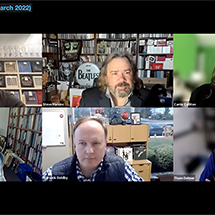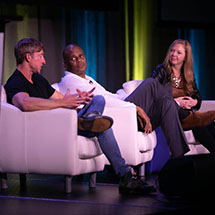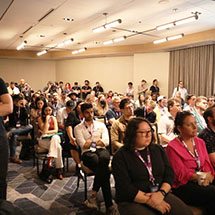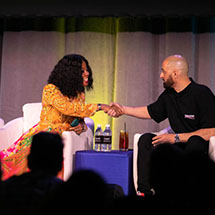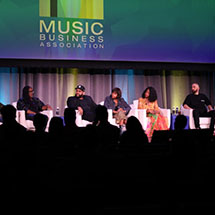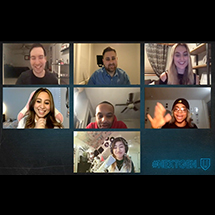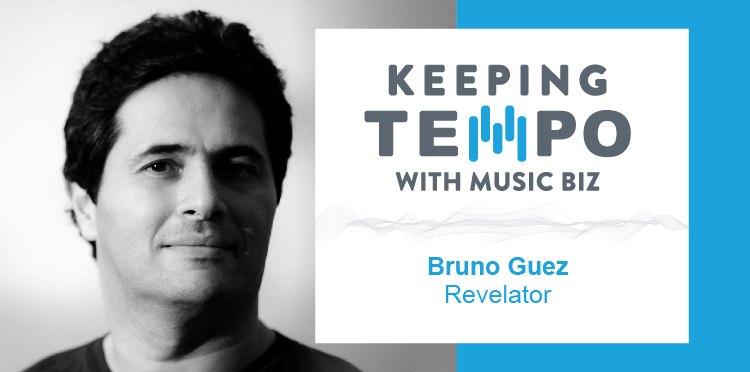
[Keeping Tempo With Music Biz] — Music NFTs: Separating Fact From Fiction with Revelator’s Founder & CEO, Bruno Guez

At the height of the COVID-19 pandemic nearly three years ago, much conversation was had around how an industry like ours, with highly important revenue streams based on in-person events, might adapt to meet the needs of a world in lockdown. One such area that was explored was that of digital goods and NFTs, a way for fans to support the artists they love by owning a unique digital keepsake. Now that the technology is beginning to mature, it is starting to become a viable new source of income for the music business. To learn more about the current state of NFTs in the music business, we discussed the technology’s present and future with Bruno Guez, founder and CEO of Revelator.
Music Biz: We’re now entering the third year where NFTs (or non-fungible tokens) have a cemented place both in virtual marketplaces worldwide and in the public consciousness. As a refresher, can you give us an objective definition of what an NFT is?
Bruno Guez: An NFT (Non-Fungible Token) is a type of digital asset that uses blockchain technology to verify and track ownership. NFTs are unique and cannot be replaced or exchanged for an equal item or value. This means that each NFT is one-of-a-kind and has its own distinct characteristics, making it a valuable and collectible item.
Music Biz: What aspects of the NFT format do you feel stand out as specifically useful to the music industry? In other words, how might adoption of NFT technology benefit artists, rights holders and the industry at large?
BG: Musicians are breaking new ground by embracing NFTs (in all different formats) as a way to connect with their fans and to generate revenues. This approach not only deepens their relationship with their audience, but also creates a sustainable economic model for their art. Unlike traditional streaming services where most artists cannot make a living on their streaming royalties, selling NFTs on Web3 markets has the potential to generate a lot more revenue for musicians,
We see different use cases for NFTs: 1) digital collectibles, 2) licensing, 3) royalties, and 4) membership.
- Digital Collectibles: NFTs can be used to represent unique, one-of-a-kind digital assets such as virtual trading cards, in-game items, or digital art. These assets can be bought, sold, and traded as collectibles. An NFT is a way to verify the authenticity and ownership of a digital asset, and because each NFT is unique, it adds a layer of scarcity to the asset, increasing its value as a collectible.
- Licensing: NFTs can be used as a form of licensing for digital content, such as music, videos, or images. By creating an NFT for a piece of content, the owner can attach specific terms of use and distribution to the NFT, and then transfer ownership of the NFT (and therefore the license to use the content) to others. This puts the creator in control of how their work (the NFT) is utilized so that when the creator transfers ownership of the NFT for licensed use of the content, the creator’s ownership and terms are already attached to the digital asset.
- Royalties: NFTs can also be used to automate the distribution of royalties to content creators. NFTs require you to assign ownership of the asset upon its creation. For example, if a piece of digital content represented by an NFT is sold, a portion of the sale can be automatically paid to the NFT owner as a royalty. This provides a way for content creators to receive ongoing income from their work, without relying on intermediaries to manage the distribution of royalties.
- Membership: NFTs can be used to represent membership in a fan club, an artist’s fan-powered community, or a VIP group. Venues might create a limited number of NFTs to grant the holder exclusive access to a VIP area and other perks associated with being a VIP member. Because each NFT is unique to its holder, you can easily assign additional perks (known as attributes) to the NFT, allowing endless possibilities of VIP experiences. This allows for the creation of exclusive, valuable memberships that can be bought, sold, and traded on the open market.
Music Biz: Have there been any early successes in implementing NFTs into our business that make you excited for the possibility of widespread use?
BG: Yes – we’ve been able to simplify the complexity around the tech to help artists and businesses adopt, mint and manage their digital assets without requiring knowledge of blockchain or crypto.
Music Biz: At this stage, music NFT sales ($200 million) are entirely dwarfed by overall global music business revenue ($25.9 billion in 2021), as well as that of global NFT sales ($25 billion in 2021) for all industries (see more from Water & Music).That said, what opportunity for growth do you see for music NFTs in the near and distant future?
BG: The prediction is that over the next few years, the value of NFTs created by musicians will increase from $200 million to over $1 billion, but it is still a small slice of the total music sales.
The growth and adoption of music NFTs is expected to be driven by the adoption of music NFTs and membership NFTs by music distribution platforms (DSPs), which could bring on 1 billion fans and subscribers. The integration of NFTs as a new form of content distribution by DSPs will contribute to solving the streaming royalty model beyond just consumption. NFTs as collectibles or as utilities will only be an additional new source of revenues for the music industry.
Music Biz: The introduction of new technology inevitably produces friction between the new disruptive tech and traditional ways of doing business. One major issue causing friction in the music business’ implementation of NFTs boils down to copyright and IP ownership. Can you briefly speak to the ways that NFTs both provide solutions to issues of copyright and ownership while challenging the status quo?
BG: There are currently no licensing frameworks or standards for NFTs, so unless the creator specifically states what rights they are granting, the buyer is not aware of any limitations or what they can do with their purchase. A16Z has released a Github defining commercial and non-commercial, as well as exclusive and non-exclusive agreements for NFT projects, but it has not yet been widely adopted. Nevertheless, this is a step towards establishing a licensing framework for NFTs.
The music industry would benefit from adopting the common licensing use cases for synchronization, mechanical, and performance rights from Web2 to Web3 based on usage and exploitation. We are just starting to see this now with Rights organizations.
For now, creators are exploring new community and commercial business models for community participation around their digital creations. As the value of NFTs increases, the major labels are starting to pay attention to Web3 creators in the music space. There is an incredible opportunity for Web3 musicians to lead and establish new frameworks for the music industry.
Music Biz: Revelator offers Web3 tooling across both Revelator Pro and Artist Wallet products to help creators create, mint, and sell their own NFTs, and manage a catalog of digital assets. What led the company to develop these solutions and how do they stand out in the sea of democratized creation & storage solutions?
BG: We embarked on this journey into the world of Web3 with the mission to solve the complex and opaque system of rights and royalty payments. With the emergence of digital wallets and NFTs, we saw a tremendous opportunity to offer artists, IP rights holders & music businesses new and innovative ways to monetize their intellectual property and music assets across new distribution channels.
By giving creators direct access to their fans, and control of their community, NFTs allow for a more personal and intimate connection with fans, enabling them to participate in the creation and celebration of their favorite artists’ work. This, in turn, creates new business models and revenue streams for artists, IP rights holders & music businesses, making the process more efficient, transparent, and profitable for all involved.
Music Biz: The conversation of NFT adoption often goes hand-in-hand with that of the bigger Web3 ecosystem and “the Metaverse.” We’re beginning to tamper our collective expectations on the possibilities of what Metaverses look and behave like — give us your perspective on where our industry’s place in the Web3 ecosystem looks like today.
BG: The current state of the Web3 ecosystem for the music industry is in a stage of rapid development and growth. However, the ecosystem is still in its early stages, and there is much work to be done to fully realize the vision of a decentralized, immersive, and interconnected metaverse.
There are ongoing efforts by teams and builders across the world to build out the infrastructure and tools necessary to support new experiences and applications that take advantage of Web3 technology. Despite the challenges, the potential for this ecosystem is immense, and the next few years will be an exciting time for the adoption and growth of Web3 and the Metaverse for the music industry and the fans.
Music Biz: How do you envision the music business’ place in the Metaverse evolving down the line?
BG: Musicians, music producers, fans and music businesses will be able to license, distribute, collaborate and co-create music experiences in the metaverse, leading to new forms of music, collaborations and new revenue streams for content creators, rights holders and fans.
There will be new opportunities for collaboration to create new types of revenue streams in a new ecosystem while pushing the boundaries of what has been possible until web3.
As these new models for the music industry take hold, it is likely that we will see a new era of creativity, innovation, and growth in the distribution and consumption of music.
Music Biz: This conversation really just scratches the surface on what positive impacts NFTs may have for the business of music. Looking to the future, are there any opportunities for the format on the horizon that particularly excite you?
BG: There are few new music business opportunities powered by Web3 that have me really excited.
The first is moving royalty payments on-chain, in real-time and with greater accuracy thereby removing some of the inefficiencies and roadblocks that have long plagued the music industry. What really has me excited is the progress we are making in leveraging distributed ledger and smart contract technology and still offering easy fiat off-ramps directly into artist bank accounts. By solving this problem, we remove the entire friction of needing to understand Web3, digital wallets, smart contacts and enable artists to easily embrace the future of the music industry payments powered by Web3.
The second business opportunity is securitizing music rights as digital assets so that any IP rights holder can access an immediate path to market for listing and selling a share of their assets, while sharing the future success and royalty streams with fans and investors. We have begun securitizing assets on the leading platforms to enable our customers and artists to list fractions of catalogs directly to fans and investors.
We believe that Web3 will revolutionize the way we think about content distribution and monetization as a whole, as it allows for a more equitable and collaborative model for all IP rights holders and one in which fans and communities can play an active role in the creation and ownership of the content they love.
You can read past “Keeping Tempo” articles via the portal linked here. And, stay tuned for more insightful discussions from our members and partners from across the industry!

